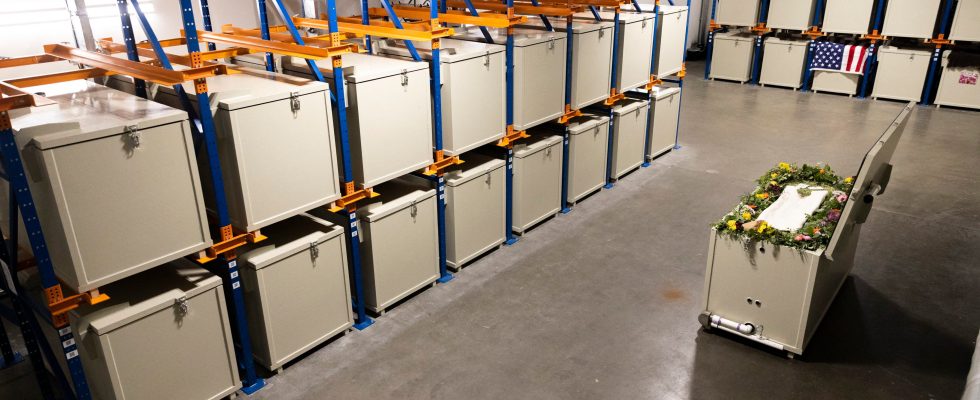In the shadow of the debate on the end of life, there is a reform tending to green death… Indeed, death is not green. This is surprising. Because, at first glance, the deceased are paragons of ecological virtue: they no longer fly, no longer drive an SUV and no longer eat meat. Environmentally speaking, a good human therefore seems like a dead human. To the point that the most fervent environmentalists could be tempted by collective suicide. The ace ! Even this radical solution would not relieve Mother Nature as much as they hoped. Think about the thermal emergency vehicles that would have to be mobilized to collect the bodies. Then the carbon footprint of the funeral as long as the guests do not go there by bike or train. And funerals themselves are polluting. This is where the idea of reform comes in.
Today, to determine what will happen to his body after his death, a French person only has the choice between burial and cremation. Even when one donates one’s body to science, after medical training or research work, the remains are either buried or cremated. This alternative between burial and cremation arises from an interpretation of article 16-1-1 of the Civil Code under which “the remains of deceased persons […] must be treated with respect, dignity and decency”. Only burial and cremation are today supposed to guarantee this principle. Yes, but both are polluting.
A cremation is equivalent to more than 1000 km by car
The environmental impact of the different funeral options has been assessed by the Fondation Services Funéraires de la Ville de Paris. A cremation would emit the carbon equivalent of more than 1000 km traveled by car and a burial four times as much. A result which can be explained by taking into account the materials used for a burial (wood, concrete for copings, vaults or monuments, imported granite or marble) and the maintenance activity of cemeteries. In addition, burial poses a pollution problem (coffins are varnished with chemicals and bodies impregnated with toxic products for embalming) and cemeteries contribute to the phenomenon of land artificialization. So much for the pollution. But, on the other hand, neither cremation nor burial allows human death to have a positive environmental impact. Indeed, even burial results in a loss of organic matter because bodies often decompose poorly in coffins.
This is why “human compost” is on the rise. It is about proposing a third, ecological way of funerals. But being interested in the subject immediately plunges you into a semantic and technical maquis. The words first: “human composting”, but also “natural organic reduction”, “humusation”, “terramation”, “aquamation”, “cryomation”, “recomposition”, we don’t know what to name the thing. Taking inventory of available techniques helps to clarify. The most generic term is human compost. It covers three possibilities: aquamation, cryomation and terramation. The first dissolves the body in an aqueous solution which can then be used as fertilizer. The second is powder reduction of the body after freezing. Finally, terramation itself covers three practices: burial in a biodegradable shroud or the transformation of the body into humus either in a mound of crushed material or in a device.
Working group to develop regulations
The idea has caught on abroad. Thus, aquamation is possible in Australia and Canada. Some American states have legalized terramation. The latter has been tested in Belgium and should be tested in several German Länder. In France too, the idea is making great strides. MoDem deputies have made a bill, to date not debated. But the government indicated, in response to a senatorial question, that a working group would be brought together under the aegis of the Council of State before the end of the first half of 2024 to develop the regulations on the subject.
It’s hard to imagine that this won’t lead to anything, especially in the current political context. As the executive can no longer pass structural reforms, it focuses on societal debates. Here is a beautiful one, with a double-trigger ethical issue at stake. We must first ask ourselves how human compost would be less respectful of the person than burial or cremation. And besides, while we’re at it, why are these too? And we must also determine what will be allowed to be done with the human compost produced… Knowing that any commercial exploitation seems immediately ruled out.
A nice bonus to the debate on the end of life. If the environmental transition must transform every part of our lives, we must also come to terms with the idea that ecology will follow us to the grave. Or what will take its place.
*Antoine Buéno is a sustainable development advisor to the Senate and an essayist. Latest work published: Should we have a green dictatorship? Democracy to save the planet (Flammarion).
.
